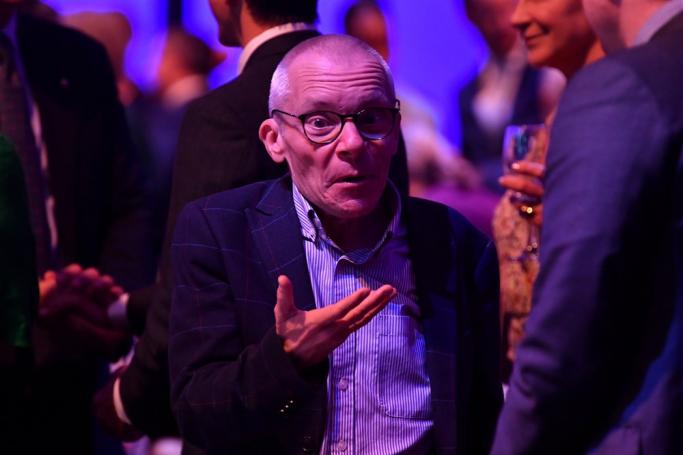An Australian economist released after nearly two years in a Myanmar jail has told of interrogations in leg irons, squalor and the sounds of screams from tortured cellmates during his time behind bars.
Sean Turnell, who returned home to Sydney on Friday after being released as part of an amnesty of almost 6,000 prisoners, gave the first public details of his incarceration in an interview with The Australian newspaper.
The former adviser to deposed Myanmar leader Aung San Suu Kyi was detained by the military in February 2021 shortly after its forces seized control of the country.
Turnell told the paper in an interview published Tuesday that he was initially kept at Yangon's Insein prison in a six metre by 2.5 metre concrete cell in which an iron chair with leg irons had been bolted to the floor.
He then endured two months of interrogations, the paper said, sometimes being taken from his bed to be locked in the irons.
Officials accused him of working for British intelligence and gun-running, and quizzed him about his work for Suu Kyi, the economist was quoted as saying.
He told the paper on Monday that he had been infected with Covid-19 five times and kept in solitary confinement for months.
In the early days of his confinement, Turnell said he could hear the sounds of people outside banging pots and pans at night in protest against the military coup.
"Then came the explosions and gunfire and people being tortured in rooms nearby. I thought, they're not going to do that to me surely? Then after a while, I started thinking, maybe they will. I think they wanted me to hear it."
- 'Ate out of a bucket' -
Turnell said he had expected to be treated "with kid gloves".
"They didn't stick electrodes to me, but I was thrown into filthy cells. The food they used to deliver to me (came) in a bucket. For 650 days, I ate out of a bucket."
In the Naypyidaw detention centre, to which he was later transferred, "it wasn't even a new bucket, they were paint buckets", he said.
"They didn't beat me, but they did push and shove me."
In Naypyidaw, prisoners were locked away for 20 hours a day, Turnell said.
"In the monsoon, the roof would leak and we would sit there all night sometimes with water just pouring down through the roof, clutching your clothes and blanket to try to keep them dry," he said.
Turnell said his wife, Ha Vu, an economist at Australia's Macquarie University, helped him survive with phone chats and by regularly sending books, cookies and cake through the Australian embassy.
The economist was sentenced in September to three years' imprisonment for breaching Myanmar's Official Secrets Act -- charges he denied -- before being released in last week's amnesty along with former British ambassador Vicky Bowman and Japanese journalist Toru Kubota.
AFP












